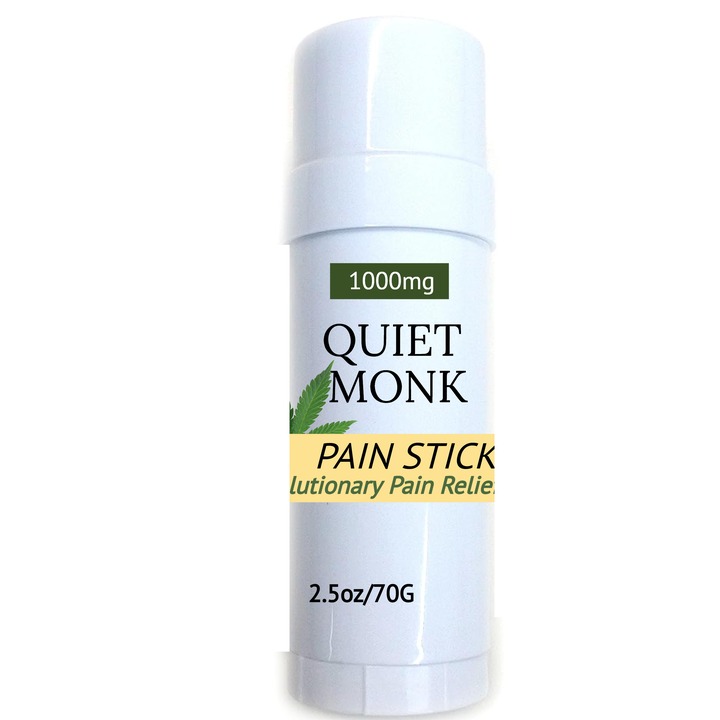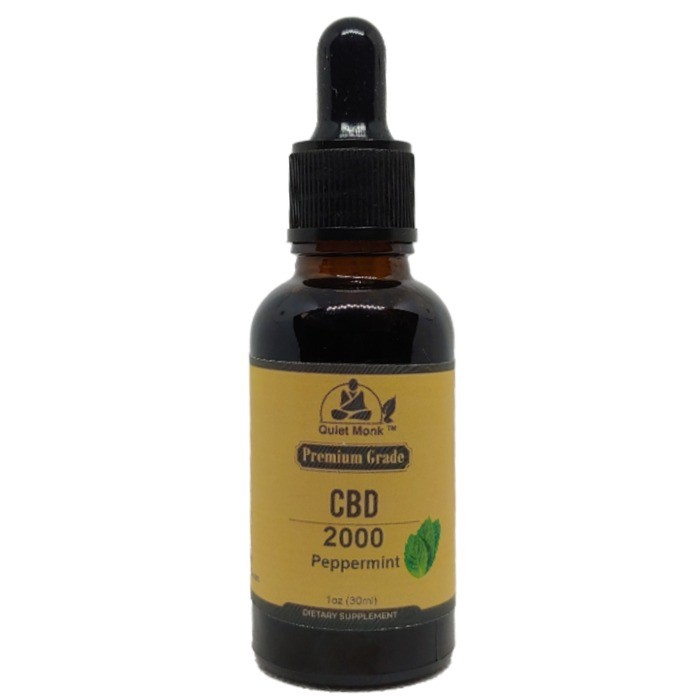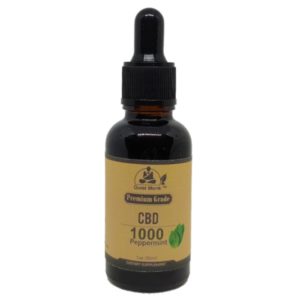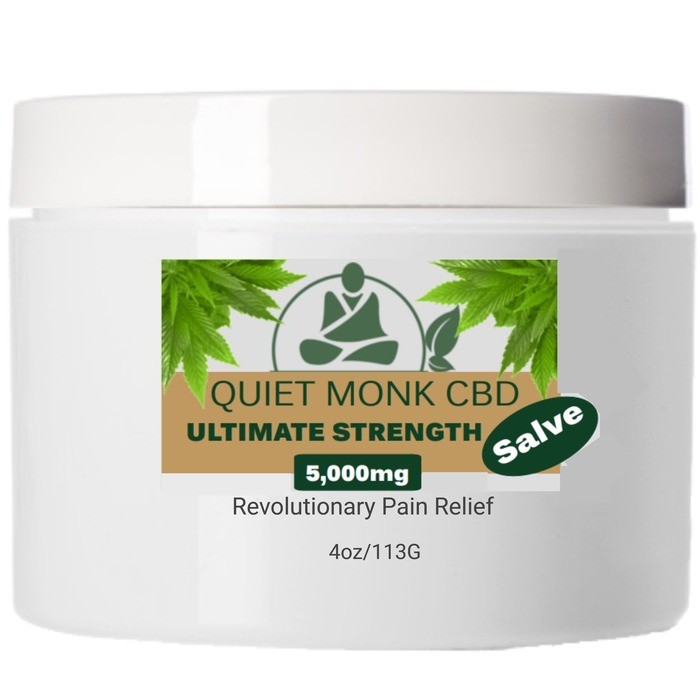
CBD is a compound found in the cannabis plant that is believed to have therapeutic effects without the psychoactive properties of THC. Two common forms of CBD products are oil and balm, both of which have distinct characteristics and uses.
CBD oil is a tincture that is taken orally, while CBD balm is a topical cream that is applied to the skin. The main difference between the two is the method of application and the way they interact with the body. CBD oil is absorbed into the bloodstream, while CBD balm is absorbed through the skin.
The benefits of CBD oil include potential pain relief, reduced anxiety and depression, and improved skin conditions. Studies have shown that CBD may have anti-inflammatory and neuroprotective properties, making it a promising treatment for a variety of ailments.
On the other hand, CBD balm is primarily used for localized pain and skin conditions. The benefits of CBD balm include potential relief from muscle and joint pain, skin conditions like eczema and psoriasis, and headaches and migraines.
When it comes to deciding between CBD oil and balm, it ultimately depends on your specific needs and preferences. Factors to consider include the severity and location of your symptoms, your preferred method of application, and any potential drug interactions.
In some cases, CBD oil and balm can be used together for maximum effect. For example, applying CBD balm to a specific area while also taking CBD oil orally may provide both localized and overall relief from pain.
In conclusion, both CBD oil and balm have their unique benefits and uses. It is important to consult with a healthcare professional before incorporating any CBD products into your routine and to carefully consider your specific needs when choosing between oil and balm. With the potential health benefits of CBD, it is worth exploring both options to find what works best for you.
Key Takeaways:
CBD oil and balm are two different forms of CBD products that offer various benefits for pain relief, anxiety, and skin conditions. While CBD oil is ingested orally, balm is applied topically, making it a better option for localized pain and skin issues. Choosing between CBD oil and balm ultimately depends on individual preferences and the specific health concern being addressed. Both can be used together for maximum benefits.
What Is CBD Oil and Balm?
CBD oil and balm are popular products derived from the cannabis plant. CBD oil is a concentrated liquid extract obtained from the hemp plant, known for its potential health benefits. It is commonly ingested orally or used topically. On the other hand, CBD balm is a topical product infused with CBD oil, designed to be applied directly to the skin for localized relief. Both options offer potential benefits, so it ultimately depends on personal preference and intended use. Pro-tip: When choosing between CBD oil and balm, consider the targeted area and desired method of application for optimal results.
How Are CBD Oil and Balm Different?
- Form: CBD oil is a liquid extract taken orally, while CBD balm is a topical cream or ointment applied directly to the skin.
- Method of Application: CBD oil is typically ingested by placing drops under the tongue, while CBD balm is applied externally to the affected area.
- Absorption: CBD oil is absorbed through the digestive system and enters the bloodstream, while CBD balm is absorbed through the skin and targets specific areas.
- Effects: CBD oil provides systemic relief, benefiting overall wellness, while CBD balm provides localized relief, targeting specific areas of discomfort or inflammation.
Pro-tip: For general well-being, consider CBD oil, but for targeted relief, choose CBD balm for faster and more precise results.
How Are CBD Oil and Balm Different?
What Are the Methods of Application?
When it comes to using CBD oil and balm, there are various methods of application available. The most popular method is topical application, where the oil or balm is directly applied to the skin. This allows for targeted relief and is commonly used for alleviating muscle and joint pain, treating skin conditions, and relieving headaches.
Another method is oral ingestion, where CBD oil is consumed by swallowing it directly or adding it to food or beverages. This approach provides a more systemic effect and is often used for promoting overall wellness and reducing anxiety.
Ultimately, the preferred method of application depends on personal preference and desired results.
What Are the Benefits of CBD Oil?
CBD oil offers a multitude of benefits for both physical and mental well-being. It has the potential to relieve chronic pain, decrease inflammation, and induce relaxation and better sleep. Furthermore, CBD oil has displayed promising results in managing anxiety, depression, and epilepsy. It may also possess neuroprotective properties and aid in the treatment of neurological conditions.
Can CBD Oil Help with Pain Relief?
Can CBD Oil Help with Pain Relief?
CBD oil has been extensively studied for its potential to alleviate pain. Studies have shown that CBD interacts with receptors in both the brain and immune system, leading to reduced inflammation and pain relief. It has been found to be effective in treating various conditions including arthritis, multiple sclerosis, and chronic pain. However, it’s important to note that individual results may vary, and it’s always recommended to consult with a healthcare professional before using CBD oil for pain relief. Furthermore, it’s crucial to ensure that the CBD oil is sourced from a reputable manufacturer and contains the appropriate concentration of CBD to be effective.
Can CBD Oil Help with Anxiety and Depression?
Yes, CBD oil has shown potential in aiding with anxiety and depression. Research has suggested that CBD may interact with serotonin receptors in the brain, which play a role in regulating mood and social behavior. This interaction has the potential to decrease anxiety and improve symptoms of depression. However, it is important to note that CBD oil is not a cure or treatment for these conditions, and more research is necessary to fully comprehend its effects. If you are considering using CBD oil for anxiety or depression, it is advised to consult with a healthcare professional for personalized guidance.
Can CBD Oil Help with Acne?
The use of CBD oil has shown potential in treating acne due to its anti-inflammatory properties and ability to regulate sebum production. This oil has been reported to effectively reduce redness, swelling, and oiliness commonly associated with acne. Additionally, its interaction with the endocannabinoid system may help balance hormones and alleviate stress, both of which are contributing factors to acne. While further research is necessary, many individuals have reported positive outcomes when incorporating CBD oil into their acne treatment routine. However, it is crucial to consult with a healthcare professional and select a reputable brand when considering using CBD oil for acne for optimal results.
Can CBD Oil Help with Epilepsy?
CBD oil has shown potential in managing epilepsy. Research has suggested that CBD, a non-psychoactive component of cannabis, may be effective in reducing the frequency and severity of seizures in certain forms of epilepsy. The FDA has approved Epidiolex, a CBD-based medication, for the treatment of specific types of epilepsy. However, it is crucial to use CBD oil under medical supervision and in combination with other epilepsy treatments. If you or a loved one are considering using CBD oil for epilepsy, it is important to consult with a healthcare professional to determine the appropriate dosage and ensure safety.
What Are the Benefits of CBD Balm?
CBD balm offers a wide range of benefits for the skin and body.
- Pain relief: With its anti-inflammatory properties, CBD can effectively reduce pain and inflammation.
- Skin health: By moisturizing and soothing the skin, CBD balm can help combat dryness and irritation.
- Relaxation: The application of CBD balm may promote relaxation and alleviate stress and anxiety.
- Neuroprotective properties: CBD has been shown to have neuroprotective properties, potentially aiding in the treatment of neurological disorders.
Fact: According to a study published in the Journal of Clinical Investigation, CBD balm was found to reduce arthritic pain and inflammation in rats.
Can CBD Balm Help with Muscle and Joint Pain?
CBD balm has demonstrated potential in relieving muscle and joint pain. The anti-inflammatory properties of CBD can aid in reducing pain and swelling associated with conditions such as arthritis or sports injuries. The balm can be directly applied to the affected area for targeted relief. However, it is important to note that results may vary for each individual. If you are considering using CBD balm for muscle and joint pain, it is recommended to consult with a healthcare professional for personalized advice. Other methods of pain relief, such as physical therapy or medication, should also be taken into consideration.
Can CBD Balm Help with Skin Conditions?
CBD balm has shown potential in helping with various skin conditions. It contains anti-inflammatory properties that can soothe and calm irritated skin. Some skin conditions that CBD balm may help with include eczema, psoriasis, acne, and dermatitis. By interacting with the receptors in the skin, CBD can reduce inflammation and promote overall skin health.
Additionally, CBD balm can effectively moisturize and nourish the skin, leading to improved appearance and texture. However, it’s important to keep in mind that individual results may vary, and it’s always best to consult with a healthcare professional before incorporating CBD products into your skincare routine.
Can CBD Balm Help with Headaches and Migraines?
CBD balm has demonstrated potential in providing relief for headaches and migraines. The anti-inflammatory properties of CBD can aid in reducing inflammation and easing pain associated with headaches. Moreover, CBD’s interaction with the body’s endocannabinoid system may assist in regulating pain perception and inducing relaxation, potentially decreasing the frequency and severity of migraines.
Directly applying CBD balm to the temples or forehead can offer targeted relief. However, it’s important to keep in mind that individual experiences may vary, and it is recommended to consult with a healthcare professional for personalized advice.
Can CBD Balm Help with Psoriasis?
CBD balm has shown potential in managing psoriasis symptoms. Its anti-inflammatory properties can help reduce redness, itching, and irritation associated with the condition. The cannabinoids in CBD balm interact with the endocannabinoid system, which plays a role in regulating immune responses and skin cell growth. Additionally, CBD balm can moisturize and soothe the skin, promoting overall skin health.
While individual experiences may vary, incorporating CBD balm into a skincare routine may provide relief for psoriasis symptoms. If considering using CBD products for psoriasis, it is recommended to consult with a healthcare professional beforehand.
Which One is Better: CBD Oil or Balm?
When it comes to deciding between CBD oil or balm, it ultimately depends on personal preferences and intended usage. CBD oil is usually taken orally and has a systemic effect, making it great for overall wellness support. On the other hand, CBD balm is applied topically and is perfect for targeting specific areas of the body for localized relief. Ultimately, the decision between CBD oil and balm is based on individual needs and desired results.
What Are the Factors to Consider?
When deciding between CBD oil and balm, there are several factors to consider:
- Targeted Use: CBD oil is typically used for internal benefits, such as pain relief and anxiety reduction. On the other hand, CBD balm is specifically designed for external application, providing localized relief for muscle and joint pain.
- Absorption Rate: CBD oil is absorbed into the bloodstream more quickly than CBD balm, which primarily works on the surface of the skin.
- Convenience: CBD oil is more versatile and can be ingested orally or added to food and drinks. Meanwhile, CBD balm offers easy topical application, making it suitable for on-the-go pain relief.
- Personal Preferences: Take into account your preferred method of application and the specific benefits you are seeking.
By evaluating these factors, you can determine whether CBD oil or balm is better suited to your needs.
Can They Be Used Together?
Yes, CBD oil and balm can be used together to maximize the benefits of CBD. CBD oil is typically taken orally or sublingually, while CBD balm is applied topically to the skin. Combining both methods can provide comprehensive relief for a variety of health concerns. For instance, CBD oil can aid with internal issues such as pain, anxiety, and epilepsy, while CBD balm can target muscle and joint pain, skin conditions, headaches, and psoriasis. By using both, you can address both internal and external concerns simultaneously. However, it’s essential to consult with a healthcare professional to determine the appropriate dosage and usage for your specific needs.







